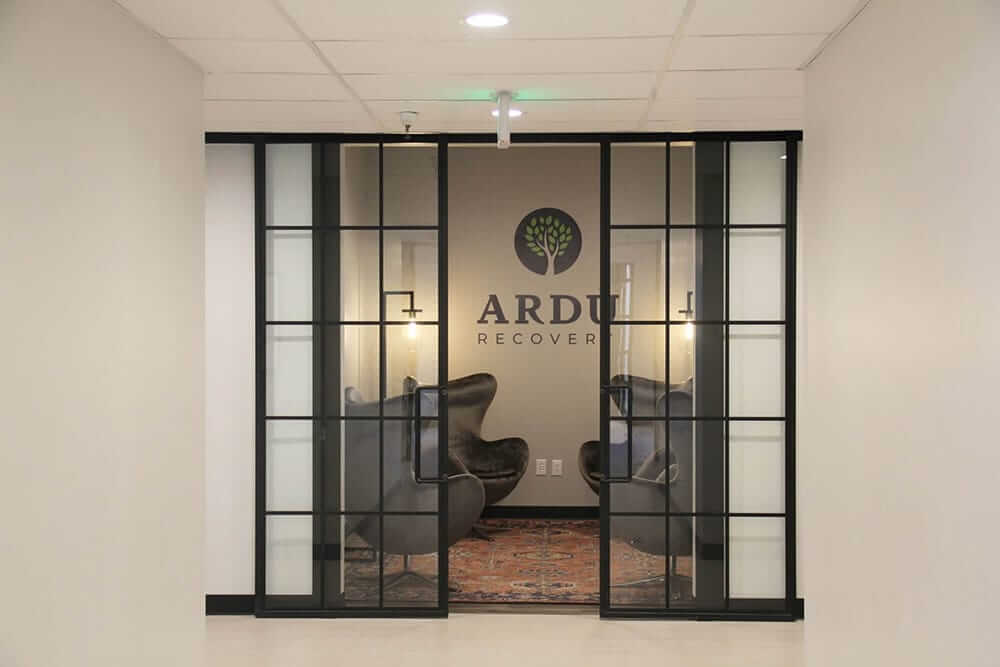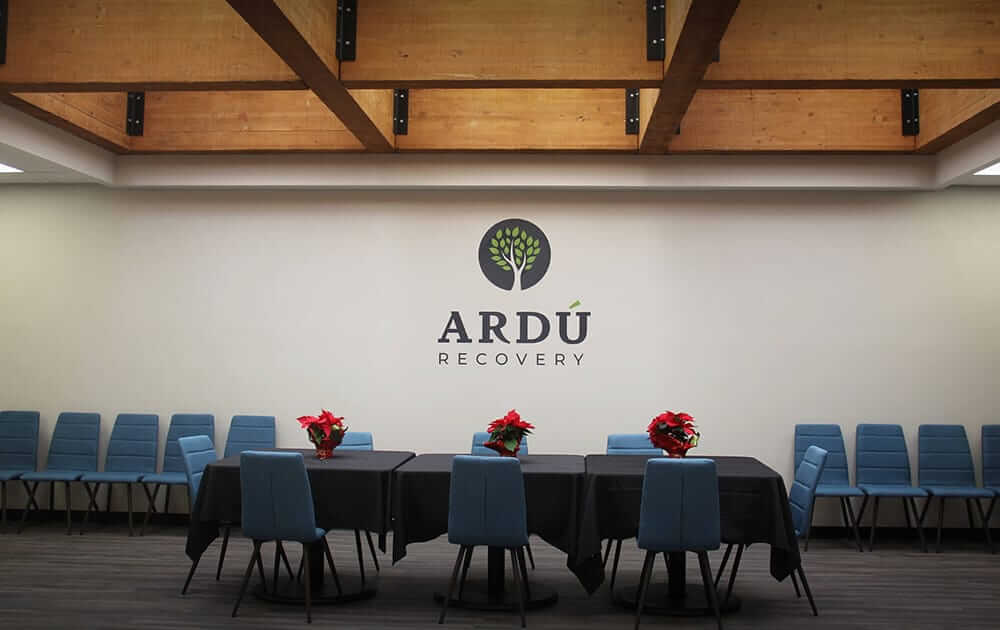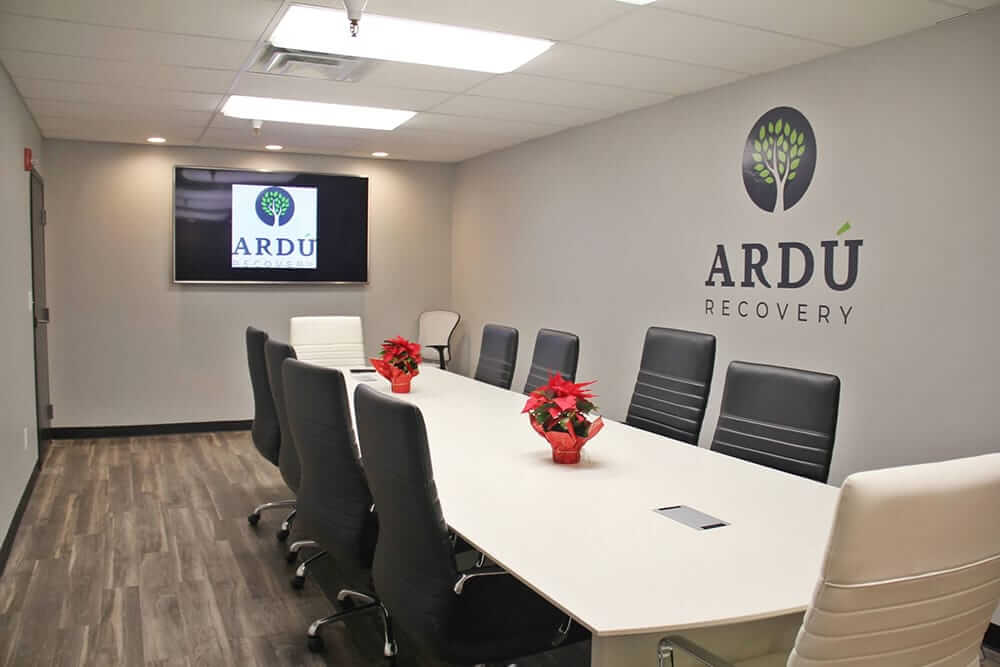Written by Drew Redd. Mina Draskovic, B.Psy., reviewed this content for accuracy.
I just want to take time to say what Ardu has done for me. I went through both the detox facility and the residential treatment program and I can’t stress enough how great of a program Ardu is providing. The staff there truly cares and goes above and beyond to take care of each and every patient.
Break the grip of heroin and build a strong foundation for lasting recovery. Our drug detox center provides the safe, supportive care you need to get clean.
Let us help you take the first step toward reclaiming your health and happiness.
And, once you finish detox, you can continue with your treatment at our heroin rehab, where we’ll teach you everything you need to know for a successful life of sobriety.








A heroin detox refers to the process of discontinuing heroin use in a safe, monitored setting so the body can clear itself of the drug and allow the brain to re-adapt to functioning without it.
Heroin is an addictive opioid drug derived from morphine, which comes from the poppy plant of the opioid family. As an agonist opioid that binds to opioid receptors in the brain, heroin delivers a surge of euphoria and relaxation, which makes it one of the most addictive drugs.
Heroin detoxification is not easy, but it is necessary. We’re here to ease the symptoms of heroin withdrawal and make your transition as comfortable as possible.
Due to the powerful effects of heroin use, this drug is considered one of the most addictive substances in existence. Prolonged heroin use causes significant changes in the brain, leading to physical and psychological dependence. These are the signs of heroin addiction that become apparent with continued use:
If you recognize these symptoms of addiction in yourself or a loved one, seek professional heroin addiction treatment, as prolonged heroin abuse can have severe consequences. Our compassionate team offers judgment-free support and personalized drug rehab services to help heroin users achieve lasting sobriety and wellness.
Heroin use is associated with a more rapid transition to injection and a higher rate of eventual heroin injection regardless of demographics, indicating the urgent need for innovative efforts to reduce heroin use and prevent injection initiation. (Bluthenthal, et al.)
When you stop taking heroin after a period of prolonged use, your physical and psychological dependence on the drug will produce unpleasant withdrawal symptoms during detox. Heroin withdrawal syndrome refers to the collection of psychological and physical effects that occur when discontinuing heroin use.
Here are the most common withdrawal symptoms you are likely to experience when getting off heroin.
In the early phases of heroin withdrawal, which lasts 1-2 days after the last drug dose, you may experience relatively mild symptoms like:
As heroin leaves the system, these early withdrawal symptoms tend to worsen quickly. Within 12-30 hours after the last heroin use, more severe symptoms start to manifest.
The peak withdrawal phase usually lasts 4-5 days. This is when the most intense physical and psychological heroin withdrawal symptoms tend to occur, including:
Prolonged heroin use leads to chemical dependence. In the absence of heroin, your brain goes into overdrive, causing uncomfortable and often painful withdrawal symptoms.
The late withdrawal phase begins around days 6-7 and can last for months. While the worst physical symptoms subside during this phase, psychological heroin withdrawal symptoms may persist, including:
Some people in recovery from heroin addiction experience post-acute withdrawal syndrome (PAWS). PAWS involves the waxing and waning of withdrawal symptoms that can persist for weeks or months after acute opioid withdrawal.
Common PAWS symptoms include:
These symptoms may come and go randomly or can be triggered by stress, exposure to triggers, or hormonal changes. While PAWS can be frustrating, it’s a normal part of the healing process after opioid addiction. Continued treatment, support groups, and healthy lifestyle changes can help manage PAWS.
Professional help through a comprehensive heroin withdrawal treatment program can help you manage symptoms, reduce risks, and set you on the path to overcoming heroin addiction for good. Contact us to learn more about our drug detox and additional heroin withdrawal treatment options.
According to recent research, the severity and duration of opioid withdrawals, “varies as a function of the half‐life of the opioid, the duration of opioid use, and patient‐specific characteristics including health status.”
The duration of the acute withdrawal period typically lasts around 5 to 7 days. During this time, you may experience a range of withdrawal symptoms, including achy muscles, a runny nose, and other physical health issues. The worst symptoms occur after about 2 days since the last dose of heroin and last for about 5 days.
Our medical professionals can ease your symptoms and facilitate a smoother withdrawal process.
The decision to get help for heroin addiction can feel scary. But checking into a professional detox center, such as Ardu, is truly the best way to safely and comfortably get through withdrawal. Here’s why it’s worth it:
Embracing help is brave and paves the way for you to reclaim your health and future. You’ve got this! The detox process is challenging, but so worth it. You’ll get through this with the right support.
Medical detox is the process of safely and comfortably withdrawing from drugs or alcohol under medical supervision. It’s the first step for many people entering addiction treatment.
At our medical drug detox center, you’ll have 24/7 access to medical professionals who guide you through heroin detox using detox medications, such as non-narcotic pain relievers and sleep aids, and provide intensive care throughout the process. Some benefits of our medical detox program include:
We offer short term medications to help ease the detox process and make you more comfortable by reducing heroin cravings, anxiety, pain, diarrhea, nausea, and other withdrawal symptoms. Our medical teams provide thoughtful care tailored to your needs.
Holistic detox takes a whole-body approach to treating heroin withdrawal and recovery. At Ardu, we favor a holistic approach that combines the best of medical treatment and alternative modalities.
Holistic detox provides a supportive environment so you can safely detox from heroin and have a smooth transition into addiction treatment.
When it comes to detoxing from heroin and other opioids during pregnancy, you should follow the guidelines set by the Substance Abuse and Mental Health Services Administration (SAMHSA).
Due to the dangers of miscarriage, preterm labor, and fetal distress, pregnant women should not undergo heroin detox. Instead, they should be started on a consistent methadone maintenance program, with doses established individually.
Here are the guidelines for detoxing from opioids set by the SAMSA “Treatment Protocol” (TIP) Series:
If you or a loved one are struggling with heroin abuse during pregnancy, contact our substance abuse treatment program and we’ll help you achieve lasting sobriety.
Heroin detox is a crucial first step, but recovery is an ongoing process that requires commitment and continued treatment. We offer personalized ongoing treatment to support different levels of care after detox.
With our help, you’ll develop the knowledge and healthy habits to prevent relapse and enjoy lifelong sobriety. Our team has an individualized care approach and collaborates with you to find the post-detox programs that fit your needs. Recovery is a lifelong process; we’re here with you every step of the way.
Heroin addiction treatment centers come in two flavors: inpatient rehab and outpatient rehab.
At Ardu, we offer both. Let’s go over the pros and cons of each so you can understand which might be most applicable to you.
Inpatient rehab gets you out of your routine and allows you to focus 100% on your recovery in a supportive environment. The benefits of inpatient care include the following:
Environment is everything. The immersive, comfortable environment and intensive support of an inpatient program can jumpstart your recovery in a way that outpatient treatment never could.
Outpatient addiction treatment allows you to continue work, family duties, and other daily living needs while getting help. This is both good and bad. Good because it’s less disruptive to your life. Bad because it’s less effective than a total immersion experience.
Outpatient options range from partial hospitalization programs and intensive outpatient programs to just a few hours a week of addiction counseling and therapies.
There’s no one-size-fits-all approach; the key is to choose the level of care appropriate for your addiction and life circumstances. Our knowledgeable addiction specialists can help you determine if a residential care program or an outpatient program is the best path forward.
Many heroin addicts suffer from mental and emotional issues that contribute to their desire to seek relief in heroin. These co-occurring disorders require specialized treatment that addresses both substance abuse and mental health issues. Such treatment is termed “dual diagnosis” treatment, meaning that it addresses your physiological addiction while also helping you with your psychological imbalance.
At Ardu, we treat substance use disorder along with any co-occurring mental illness. We use behavioral therapies to address the underlying issues that contribute to addiction and mental health disorders concurrently for a successful recovery process.
Dual diagnosis services we offer for people struggling with opioid addiction include:
We use various therapeutic approaches to help you achieve lasting recovery from heroin addiction:
We develop customized treatment plans using appropriate psychotherapies to address each client’s unique needs. Our compassionate team offers research-based addiction treatment services to help you achieve lasting wellness.
Going to a heroin detox center is the first step towards kicking the disease of addiction for good. The best facilities not only offer detox, but also heroin addiction treatment programs that aid in your long-term recovery from heroin addiction.
Our Utah heroin addiction treatment program is not only going to help you get clean, but you’ll learn to stay clean, as well. Through both group therapy and individual therapy methods, you’ll begin to see that there’s a new, incredible life that awaits you.
Anyone struggling with heroin abuse or addiction can be eligible to enroll in our heroin detox center.
Our recovery center welcomes people seeking help to overcome their heroin addiction. Our dedicated team of professionals is here to guide and support you in your addiction treatment process, laying the foundation for long-term sobriety and reducing the risk of relapse.
To enroll in an Ardu heroin detox program, contact Ardu Recovery Center online or via phone (801-810-1234). Our treatment providers will work with you to find a recovery path that works for you during the detox process and beyond. Read our admissions process page and contact our admissions team for additional information.
You can pay for treatment with your health insurance at Ardu if your insurance covers our treatment services (which most do). If you want to verify your insurance coverage and gather more information on financial assistance, visit our insurance verification page.

Drew Redd is the executive director of Ardu Recovery Center and is dedicated to empowering people on their journey to sobriety.
Heroin usage and abuse are influenced by many interrelated factors, rather than stemming from a lack of willpower alone. Key factors that may contribute to heroin addiction include:
The addictive pull of heroin, coupled with these predisposing factors, disrupts normal functioning and makes usage spiral out of control. With compassionate support and evidence-based treatment, our heroin rehab center helps you overcome heroin addiction regardless of what contributed to it initially. Recovery is possible for anyone committed to regaining their health and wellbeing.
Nar-Anon is a 12-step support group for friends and family members of those suffering from drug addiction. Nar-Anon meetings provide a confidential place for loved ones to find help and healing.
Both Narcotics Anonymous and Nar-Anon facilitate 12-step meetings. There may be additional group sessions and additional counseling to help participants cope with the challenges of addiction. Both follow the 12-step model first developed by Alcoholics Anonymous to help alcoholics in their recovery journey.
Heroin overdose deaths in the US have been occurring at an alarming rate. The National Institute on Drug Abuse (NIDA) reports that 9,173 people died of a heroin overdose in 2021.
Addiction to heroin can lead to fatal outcomes, often associated with respiratory depression, which can lead to decreased blood pressure and ultimately result in overdose fatalities.
If you are struggling with heroin abuse, contact SAMHSA’s National Helpline. Then, give us a call, and our healthcare professionals will work with you to come up with a heroin addiction treatment plan that helps you leave this destructive drug behind.
Yes, we offer treatment for people with opioid use disorder, including those struggling with prescription opioids. Our programs are designed to assist you on your journey into sobriety with a wide range of therapeutic and medical interventions. We offer both opioid detox and opioid rehab services.
Abstinence rates after rehab for heroin abuse in the US vary from state to state, and there is a possibility of relapse for people recovering from addictions to heroin. Successful rehabilitation helps many individuals lead healthy lives, but the risk of the addiction to relapse pipeline remains a challenge that requires ongoing support.
Opiate drug addiction is not the same as heroin addiction, although both involve opiates or opioids.
The journey to recovery and the plan of care may differ based on the specific substance used, but our addiction treatment professionals are equipped to address both types of addiction with tailored approaches.
If you or a loved one is struggling with an opiate addiction, contact our opiate detox and opiate rehab center; we’re happy to help.
Liver diseases can be relatively common in heroin addicts. Conditions such as hepatitis and cirrhosis can occur due to factors such as contaminated needles, risky behaviors, and the toxic effects of the drug itself. Regular monitoring, harm reduction, and healthcare interventions are essential for addressing these risks in individuals with addiction to heroin.
An in-depth look into heroin addiction
Top 10 drugs that can cause kidney damage